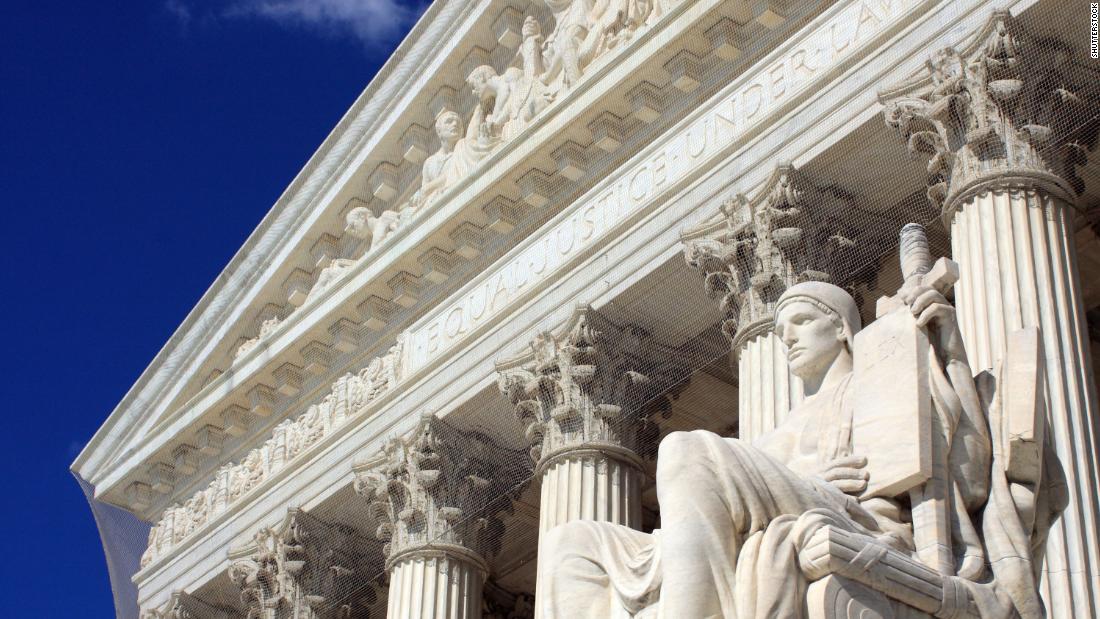Supreme Court will decide the fate of Affordable Care Act next term - 4 minutes read
 Washington (CNN) The Supreme Court announced Monday it will decide the fate of the Affordable Care Act sometime next term, presumably after the presidential election.
Washington (CNN) The Supreme Court announced Monday it will decide the fate of the Affordable Care Act sometime next term, presumably after the presidential election.The court's move ensures another major shift in the political landscape during the election season on an issue that has dominated American politics for the last decade. It will be the third time the court has heard a significant challenge to a law that impacts millions of Americans.
The dispute pits Democratic-led states led by California against the Trump administration and red states led by Texas.
The Affordable Care Act remains in effect in the meantime.
The court's decision to step in comes as somewhat of a surprise. Earlier in the term, the justices had turned down a request to expedite the case so that it could be heard this term before the election.
Conventional wisdom was that the court would decide to allow proceedings to continue in the courts below, and only step in after a final judgment. That could have taken months if not years, so but instead, the justices agreed to place the case on the docket for next term, which begins in October. That means the decision will only happen after the next election.
It's a victory for supporters of the law. They wanted the case to be heard this term, but their secondary argument was for next.
"For the third time, the fate of the Affordable Care Act almost certainly rests in the hands of Chief Justice (John) Roberts -- who has already voted twice to reject challenges to the statute. And the fact that any decision will come on the far side of the 2020 elections was certainly part of the court's calculus in agreeing to take up the case, as they'd previously refused to expedite the dispute so it could be resolved by this summer," said Steve Vladeck, CNN Supreme Court analyst and professor at the University of Texas School of Law.
"The fact that the court is stepping in now may be a good sign for the Affordable Care Act's defenders. The Court of Appeals had, perhaps disingenuously, held that there was still work for the trial court to do even in concluding that the ACA was unconstitutional, but the Justices aren't waiting for that to happen," Vladeck said. "That's an odd move if the justices are planning to simply agree with the lower courts, but a move that makes a lot more sense if a majority has doubts."
Texas and other Republican-led states sued, arguing that since the mandate was no longer tied to a specific tax penalty, it had lost its legal underpinning. They also argued that because the individual mandate was intertwined with a multitude of other provisions, the entire law should fall, including protections for people with preexisting conditions.
The Trump administration filed briefs siding with Texas for the most part, although they have made a relatively new argument that the entire law should fall but the ruling should only apply to the 18 states that brought the challenge.
Over 98 pages, the 2-1 appeals court asked a district court to review that issue -- infuriating supporters of the law. They contend the two Republican appointees in the majority were attempting to delay a decision that could gut the law until after the election. In December, a federal appeals court held that the individual mandate was unconstitutional . But critically, the court punted on whether the rest of the massive law -- even provisions unrelated to the mandate -- could remain on the books.Over 98 pages, the 2-1 appeals court asked a district court to review that issue -- infuriating supporters of the law. They contend the two Republican appointees in the majority were attempting to delay a decision that could gut the law until after the election.
California and other Democratic-led states had asked the Supreme Court to step in this term to review the decision.
This story has been updated to include additional background information.
Source: CNN
Powered by NewsAPI.org